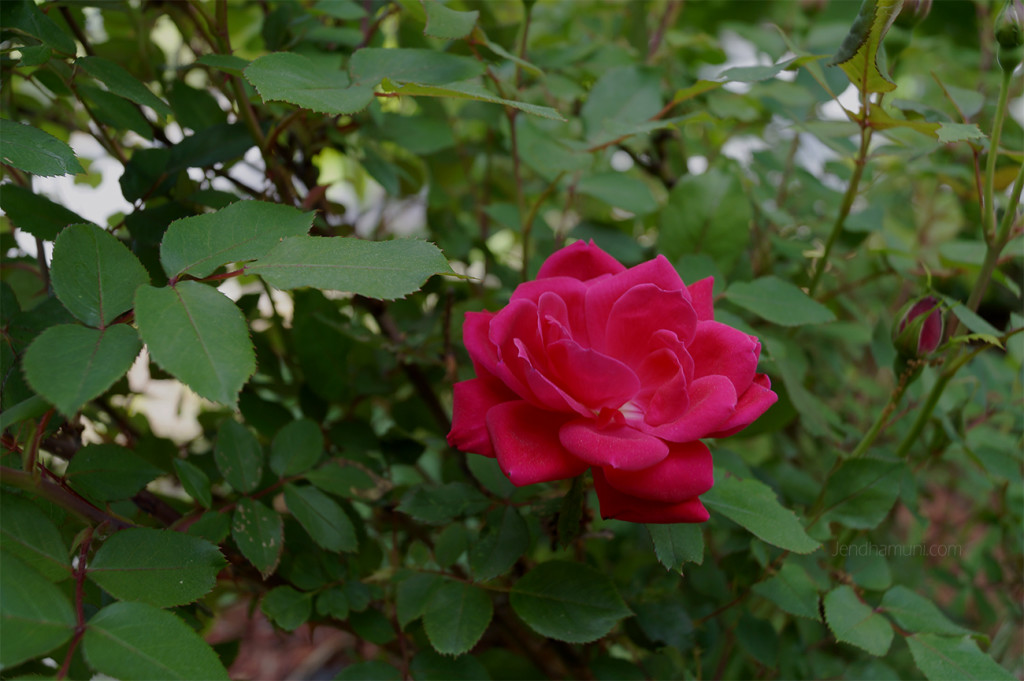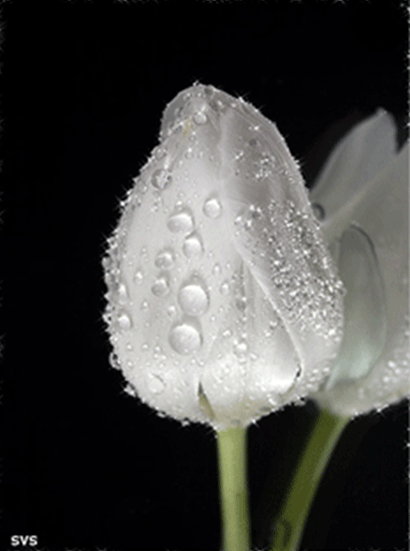-
Learn to flow Comment September 2, 2015 -
Rest your mind and body Comment September 2, 2015 -
Yard-long beans Comment September 2, 2015Beans contain beta-carotene, chlorophyll, vitamins B1 and B2, protein, thiamine, riboflavin, phosphorus, iron, fiber, and pectin. Vegetables are useful for controlling blood sugar levels, treat hypertension, minimizes the risk of stroke, heart attack, treating constipation, and improve the functioning of the digestive organs. In addition, he also has diuretic properties (laxative urine) levels are. By taking it regularly can help smooth diyakinin urination.
In some countries, beans are used to treat rheumatism, arthritis, and urinary tract disorders. Also to keep the skin from acne problems, helping fuel the recovery Lukar, diarrhea, eczema, kidney disorders, and itching. For those at risk of developing breast cancer and leukemia can take advantage of this vegetable because it contains anti-cancer substances. There are also the content of antioxidants, antiviral, and antibacterial. He also can improve the function of red blood cells, curing the disease of sheep, overcoming back pain, and anemia.
Source: Health Food Nutrition
Link source -
Every rose Comment September 2, 2015Every rose that is sweet-scented within, that rose is telling of the secrets of the universal. ~ Rumi

-
Puppies are confused… Comment September 2, 2015When you teach a puppy the “Come” command, it is best to kneel down so that you are at their same level. At 2 month old puppy can only hold their bathroom needs for 2 hours, a 3 month old for 3 hours, and so on…Until they are 8 months old. The muscles in their bladder are not fully developed and they need time to slowly make it stronger. This is an important element to remember when training. Puppies will need to have a bowel movement 15 to 20 minutes after eating.
When you want to teach your puppy to catch a ball, it is often more successful if you first use a soft fabric ball since it will be easier for them to mouth. A puppy can begin learning commands from the very first day that you bring them home – 8 weeks old is old enough to start to learn basic commands such as “Sit” and “Come”. Source: Facts about dogs

-
Reading the Natural Mind Comment September 2, 2015A Dhammatalk by Ajahn Chah
Our way of practice is looking closely at things and making them clear. We’re persistent and constant, yet not rushed or hurried. Neither are we too slow. It’s a matter of gradually feeling our way and bringing it together. However, all of this bringing it together is working towards something, there is a point to our practice.
For most of us, when we first start to practice, it’s nothing other than desire. We start to practice because of wanting. At this stage our wanting is wanting in the wrong way. That is, it’s deluded. It’s wanting mixed with wrong understanding.
If wanting is not mixed with wrong understanding like this, we say that it’s wanting with wisdom (paññā)2. It’s not deluded – it’s wanting with right understanding. In a case like this we say that it’s due to a person’s pāramī or past accumulations. However, this isn’t the case with everyone.
Some people don’t want to have desire, or they want not to have desires, because they think that our practice is directed at not wanting. However, if there is no desire, then there’s no way of practice.
We can see this for ourselves. The Buddha and all his disciples practiced to put an end to defilements. We must want to practice and must want to put an end to defilements. We must want to have peace of mind and want not to have confusion. However, if this wanting is mixed with wrong understanding, then it will only amount to more difficulties for us. If we are honest about it, we really know nothing at all. Or, what we do know is of no consequence, since we are unable to use it properly.
Everybody, including the Buddha, started out like this, with the desire to practice – wanting to have peace of mind and wanting not to have confusion and suffering. These two kinds of desire have exactly the same value. If not understood then both wanting to be free from confusion and not wanting to have suffering are defilements. They’re a foolish way of wanting – desire without wisdom.
In our practice we see this desire as either sensual indulgence or self-mortification. It’s in this very conflict that our teacher, the Buddha, was caught up, just this dilemma. He followed many ways of practice which merely ended up in these two extremes. And these days we are exactly the same. We are still afflicted by this duality, and because of it we keep falling from the Way.
However, this is how we must start out. We start out as worldly beings, as beings with defilements, with wanting devoid of wisdom, desire without right understanding. If we lack proper understanding, then both kinds of desire work against us. Whether it’s wanting or not wanting, it’s still craving (tanhā). If we don’t understand these two things then we won’t know how to deal with them when they arise. We will feel that to go forward is wrong and to go backwards is wrong, and yet we can’t stop. Whatever we do we just find more wanting. This is because of the lack of wisdom and because of craving.
It’s right here, with this wanting and not wanting, that we can understand the Dhamma. The Dhamma which we are looking for exists right here, but we don’t see it. Rather, we persist in our efforts to stop wanting. We want things to be a certain way and not any other way. Or, we want them not to be a certain way, but to be another way. Really these two things are the same. They are part of the same duality.
Perhaps we may not realize that the Buddha and all of his disciples had this kind of wanting. However the Buddha understood regarding wanting and not wanting. He understood that they are simply the activity of mind, that such things merely appear in a flash and then disappear. These kinds of desires are going on all the time. When there is wisdom, we don’t identify with them – we are free from clinging. Whether it’s wanting or not wanting, we simply see it as such. In reality it’s merely the activity of the natural mind. When we take a close look, we see clearly that this is how it is.
The Wisdom of Everyday Experience
So it’s here that our practice of contemplation will lead us to understanding. Let us take an example, the example of a fisherman pulling in his net with a big fish in it. How do you think he feels about pulling it in? If he’s afraid that the fish will escape, he’ll be rushed and start to struggle with the net, grabbing and tugging at it. Before he knows it, the big fish has escaped – he was trying too hard.
In the olden days they would talk like this. They taught that we should do it gradually, carefully gathering it in without losing it. This is how it is in our practice; we gradually feel our way with it, carefully gathering it in without losing it. Sometimes it happens that we don’t feel like doing it. Maybe we don’t want to look or maybe we don’t want to know, but we keep on with it. We continue feeling for it. This is practice: if we feel like doing it, we do it, and if we don’t feel like doing it, we do it just the same. We just keep doing it.
If we are enthusiastic about our practice, the power of our faith will give energy to what we are doing. But at this stage we are still without wisdom. Even though we are very energetic, we will not derive much benefit from our practice. We may continue with it for a long time and a feeling will arise that aren’t going to find the Way. We may feel that we cannot find peace and tranquillity, or that we aren’t sufficiently equipped to do the practice. Or maybe we feel that this Way just isn’t possible anymore. So we give up!
At this point we must be very, very careful. We must use great patience and endurance. It’s just like pulling in the big fish – we gradually feel our way with it. We carefully pull it in. The struggle won’t be too difficult, so without stopping we continue pulling it in. Eventually, after some time, the fish becomes tired and stops fighting and we’re able to catch it easily. Usually this is how it happens, we practice gradually gathering it together.
It’s in this manner that we do our contemplation. If we don’t have any particular knowledge or learning in the theoretical aspects of the teachings, we contemplate according to our everyday experience. We use the knowledge which we already have, the knowledge derived from our everyday experience. This kind of knowledge is natural to the mind. Actually, whether we study about it or not, we have the reality of the mind right here already. The mind is the mind whether we have learned about it or not. This is why we say that whether the Buddha is born in the world or not, everything is the way it is. Everything already exists according to its own nature. This natural condition doesn’t change, nor does it go anywhere. It just is that way. This is called the Sacca Dhamma. However, if we don’t understand about this Sacca Dhamma, we won’t be able to recognize it.
So we practice contemplation in this way. If we aren’t particularly skilled in scripture, we take the mind itself to study and read. Continually we contemplate (lit. talk with ourselves) and understanding regarding the nature of the mind will gradually arise. We don’t have to force anything.
Constant Effort
Until we are able to stop our mind, until we reach tranquillity, the mind will just continue as before. It’s for this reason that the teacher says, ”Just keep on doing it, keep on with the practice!” Maybe we think, ”If I don’t yet understand, how can I do it?” Until we are able to practice properly, wisdom doesn’t arise. So we say just keep on with it. If we practice without stopping we’ll begin to think about what we are doing. We’ll start to consider our practice.
Nothing happens immediately, so in the beginning we can’t see any results from our practice. This is like the example I have often given you of the man who tries to make fire by rubbing two sticks of wood together. He says to himself, ”They say there’s fire here”. and he begins rubbing energetically. He’s very impetuous. He rubs on and on but his impatience doesn’t end. He wants to have that fire. He keeps wanting to have that fire, but the fire doesn’t come. So he gets discouraged and stops to rest for awhile. He starts again but the going is slow, so he rests again. By then the heat has disappeared; he didn’t keep at it long enough. He rubs and rubs until he tires and then he stops altogether. Not only is he tired, but he becomes more and more discouraged until he gives up completely. ”There’s no fire here!” Actually he was doing the work, but there wasn’t enough heat to start a fire. The fire was there all the time but he didn’t carry on to the end.
This sort of experience causes the meditator to get discouraged in his practice, and so he restlessly changes from one practice to another. And this sort of experience is also similar to our own practice. It’s the same for everybody. Why? Because we are still grounded in defilements. The Buddha had defilements also, but He had a lot of wisdom in this respect. While still worldlings the Buddha and the arahants were just the same as us. If we are still worldlings then we don’t think rightly. Thus when wanting arises we don’t see it, and when not wanting arises we don’t see it. Sometimes we feel stirred up, and sometimes we feel contented. When we have not wanting we have a kind of contentment, but we also have a kind of confusion. When we have wanting this can be contentment and confusion of another kind. It’s all intermixed in this way. Continue reading
-
Every problem… Comment September 1, 2015Every problem is open to a spiritual solution. It is found by expanding your awareness, moving beyond the limited vision of the problem. ~Anurag Prakash Ray

-
Trained pugs on command Comment September 1, 2015A group of pugs is called a grumble: We love when groups of certain animals are known by unique and unusual collective names. Sometimes, even a certain breed gets its own name when in a group. A group of Pugs is called a grumble. Seems like kind of a bad-tempered nickname for such a good-natured breed. Source: Momme

-
You have found yourself Comment September 1, 2015When there are no conflicts in you between material wealth and spiritual life, you have found yourself. ~Unknown

-
Kind and a forgiving spirit Comment September 1, 2015















